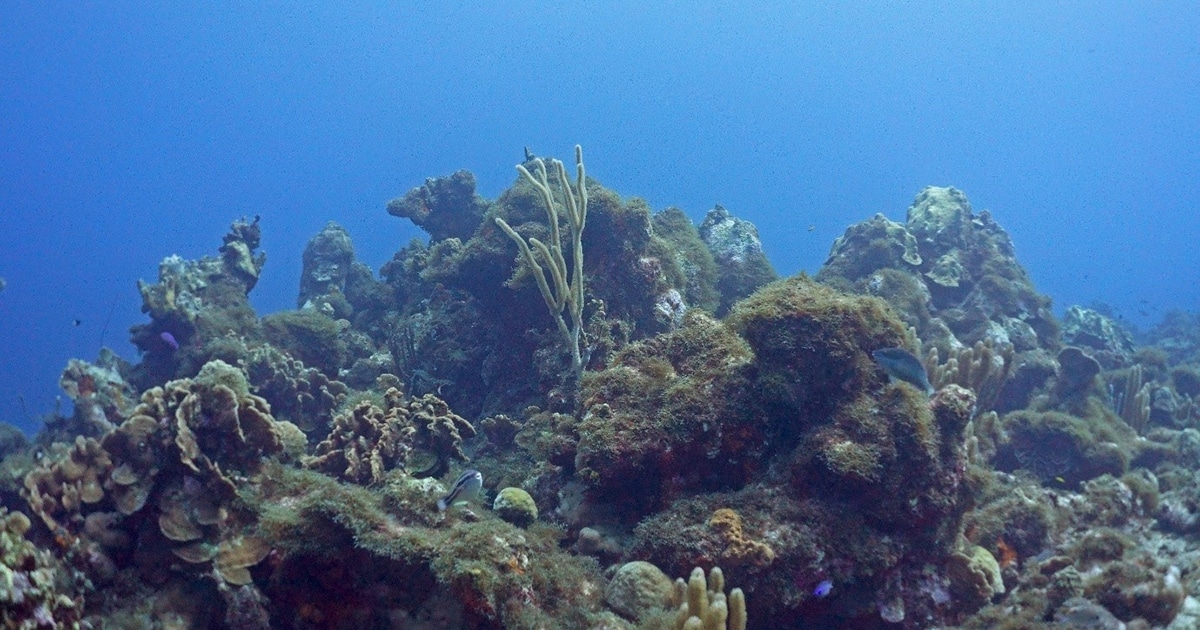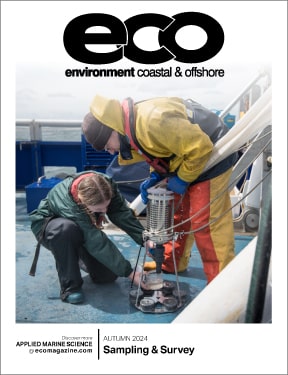Such a shift can cause a change in the composition of dissolved organic substances released by these organisms and thereby disrupt the delicate balance of bacterial communities growing on them, with potential negative consequences for the functioning of the ecosystem. These findings could be significant not only for coral reefs, but also for other marine ecosystems such as seagrass meadows or kelp forests.
“The discovery is surprising,” explains lead author Dr. Bianca Thobor from the Department of Marine Ecology at the University of Bremen. “We initially thought that algal exudates—dissolved organic substances released by algae—were the main drivers of harmful bacterial growth. However, our findings suggest that on algae-dominated reefs, the corals’ exudates themselves could instead play a significant role in this process.”
Opportunistic, Heterotrophic and Pathogenic Bacteria Increase
The study was conducted during a field trip to the CARMABI research station on Curacao, that was organized by NIOZ and the Sealink project. The field work for this publication was conducted under the supervision of Dr. Andi Haas of NIOZ and involved two more NIOZ PhD candidates from his group (Milou Arts and Meine Boer).
Andi Haas, said: “The most interesting result from this study is – next to the characterization of the exudate carbohydrate fraction – the finding that regardless in which direction the regime shift in a marine ecosystem goes (i.e., from pristine to degraded or from degraded to pristine) the microbial community displays a similar initial response. Opportunistic, heterotrophic, and pathogenic bacteria increase. This shows that it becomes increasingly harder to reestablish a healthy reef system once you are on the trajectory towards degraded, algae dominated benthic communities.”
“The Balance of Dissolved Organic Substances in the Water is Crucial”
The study, which has now been published in the renowned journal mSystems, provides unexpected results: In an algae-overgrown coral reef, it is the exudates of the corals themselves that promote the growth of harmful bacteria, not those of the algae. “This suggests that the prevalent composition of dissolved organic substances in the water is crucial. A change in this composition can disturb this balance, for example a change in the respective abundances of corals and algae due to human influences, can promote the growth of harmful microorganisms,” says the biologist.
This research was carried out in collaboration with the Department of Marine Glycobiology at the University of Bremen and international partners on the Caribbean Island of Curaçao and sheds new light on the threats to coral reefs. Coral reefs are already severely endangered by climate change and environmental pollution. “Since the 1950s, we have already lost half of all hard corals worldwide, especially in the Caribbean, where many reefs are now overgrown by algae,” emphasizes Thobor.
Results also Important for Seagrass Meadows and Kelp Forests
The scientists analyzed the composition of sugars released into the water by stony corals and algae, as well as those already present in the reef water. These sugars were then mixed with seawater from an algae-dominated reef on Curaçao and monitored for four days. To find out how the bacterial community developed during this time, the researchers took water samples at different times and sequenced genetic material of the bacteria.
These results could be important not only for coral reefs, but also for other marine ecosystems such as seagrass meadows or kelp forests. Thobor emphasizes: “These results illustrate how sensitive the balance of marine habitats is to changes in the dissolved organic material present in the water—and how such changes can have potentially harmful effects on the stability and health of these ecosystems.”

